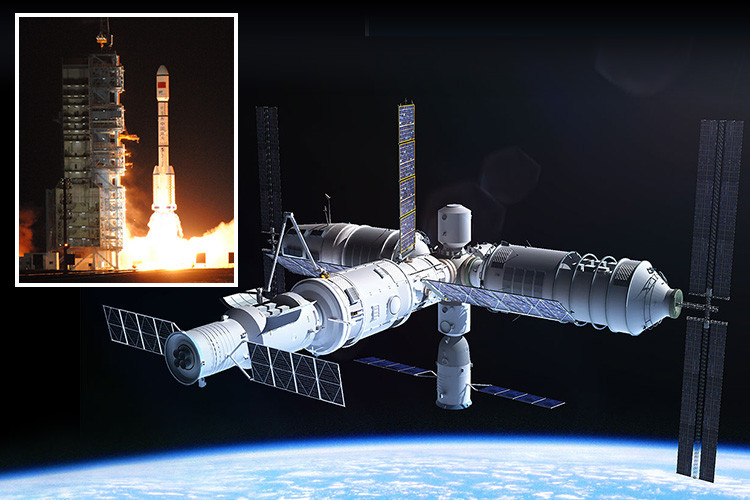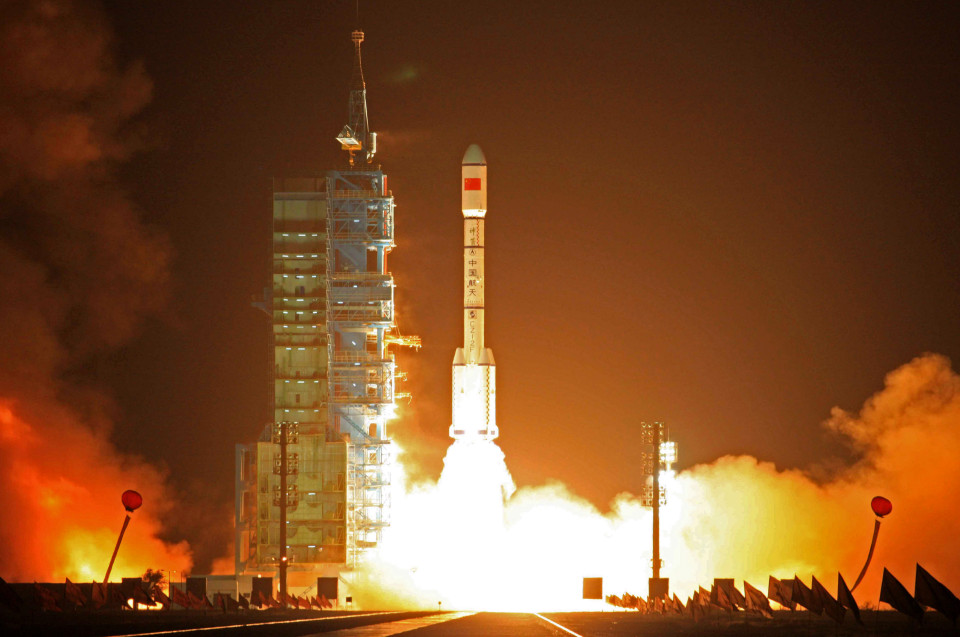10/13/2016 / By spacenews
International Space Station expected to go out of operation in a decade, leaving the People’s Republic alone in space
Article by Jasper Hamill
China is expecting to dominate space within the next 10 years.
A top military official has claimed the People’s Republic will be the only nation with a permanent base in space by 2024, when the America-backed International Space Station will reach the end of its life.

A Chinese Long March rocket and the Tiangong-1 space station, which is currently out of control and expected to hurtle back into the Earth next year
Lei Fanpei, chairman of China Aerospace Science and Technology Corp, told Xinhua that his country “plans to launch the experimental core module of its space station around 2018 with a Long March 5 heavyload carrier rocket, and the 20 ton combination space station will be sent into orbit around 2022”.
This could leave “China’s space station may be the only one left in service”, the news service reported.
The International Space Station is nearing the end of its life, with no clear agreement to replace it in place.
NASA has tasked Boeing with figuring out how to extend the lifespan of the ISS from 2020 to 2028, but it is not yet clear how it will achieve this.
Once China’s space station is up and running by 2022, it is likely that Beijing will seek to use space in some sort of military capacity, potentially sparking an orbital arms race.
Xu Qiliang, a senior Chinese air force commander, has said the militarisation of space “is a historical inevitability and a development that cannot be turned back”.
“As far as the revolution in military affairs is concerned, the competition between military forces is moving towards outer space,” he told the People’s Liberation Army Daily.

A Long March-2FT1 carrier rocket loaded with the unmanned Tiangong-1 blasts off from the launch pad at the Jiuquan Satellite Launch Centre
Read more at: thesun.co.uk
Receive Our Free Email Newsletter
Get independent news alerts on natural cures, food lab tests, cannabis medicine, science, robotics, drones, privacy and more.


















